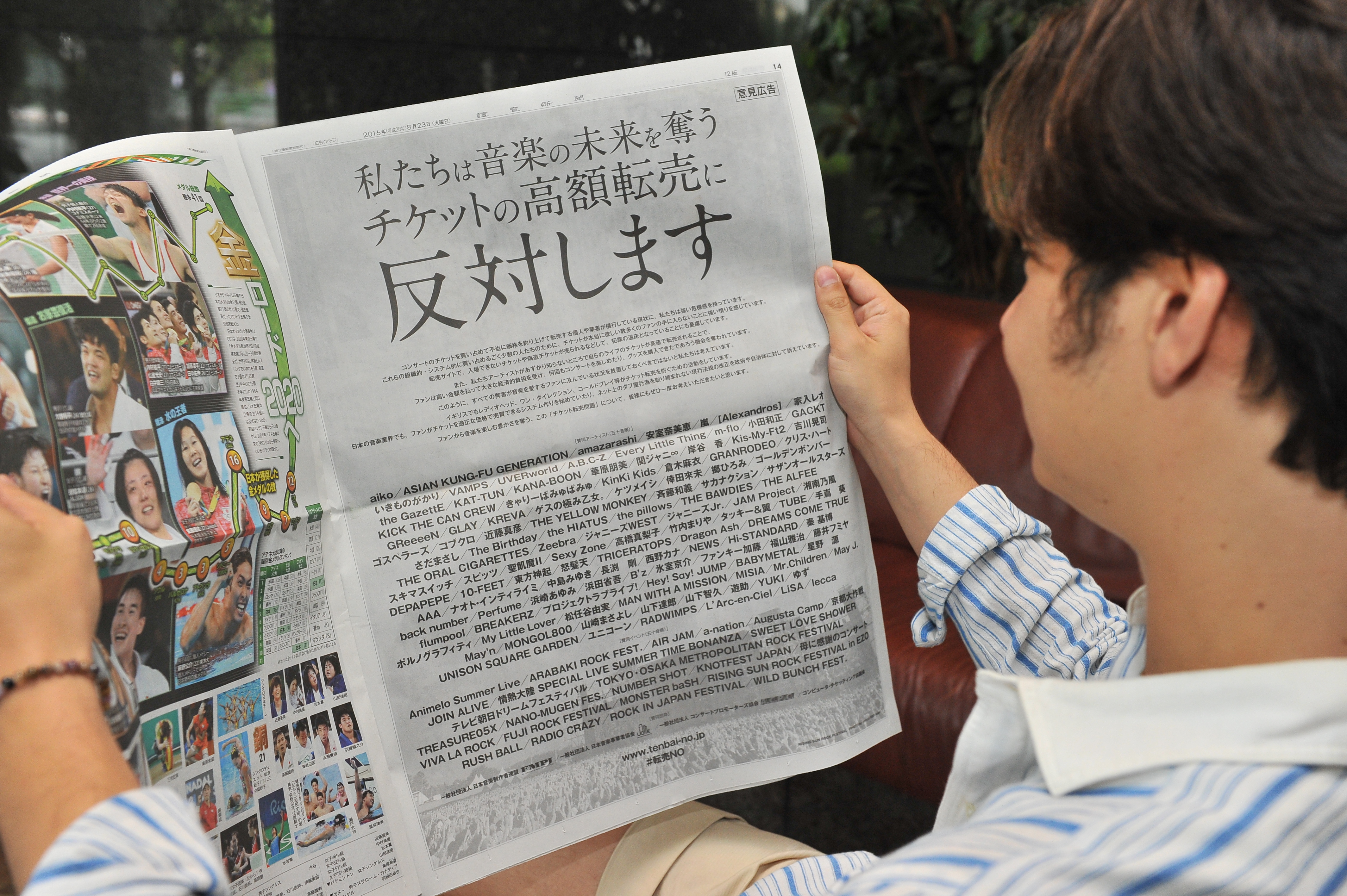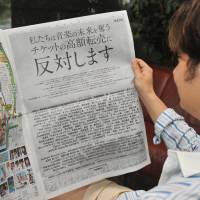Tenbai No, a group that is against ticket resales, took out full-page ads in this morning's Asahi and Yomiuri newspapers.
The black-and-white ads featured the words "Hantai shimasu" ("to be opposed to") in large type and a statement that read: "We are against the high-priced reselling of tickets, which is depriving music of its future."
Tenbai No (which translates as "Resale No") wants to draw attention to concert ticket scalpers and Japan's booming online resale market, which has seen instances of ticket prices being pushed up to more than 10 times their original price.
As of now, 116 Japanese acts have signed on in support of the movement, including Glay, Babymetal and Southern All-Stars. The design of the ad itself looks like it could be promoting the country's most star-filled music festival, especially with a shot of Rising Sun Rock Festival illustrating the background.
However, it's not just musicians that are joining the ranks; 24 festivals and four music-related associations are also on board. On the Tenbai No website, which launched at 4 a.m. on Tuesday, the president of the Federation of Music Producers Japan (FMPJ), Mitsunori Kadoike, writes: "Artists and concert staff work hard every day to present great performances to as many music fans as possible. High-priced reselling of tickets is a problem that can destroy the positive relationship that exists between artists and music fans."
This is the first time such a large-scale concerted effort has been made regarding ticket resales. However, some big names in the music world have already implemented anti-scalping measures. Facial scanning systems were used by J-pop act Arashi earlier in the year to prevent single buyers from purchasing multiple tickets. Idol unit Momoiro Clover Z and J-rock heavyweights B'z and Mr. Children have used such technology since 2014.



















With your current subscription plan you can comment on stories. However, before writing your first comment, please create a display name in the Profile section of your subscriber account page.